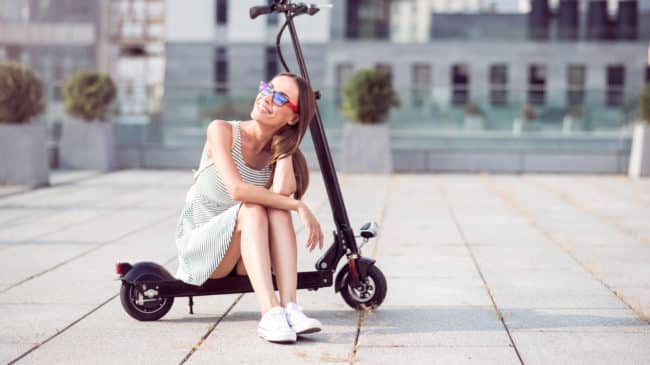Dockless e-scooters currently operate in most major American cities, offering tourists and residents an alternative to cars and mass transit. In terms of urban planning, scooters are providing a vital option in many city centers as well as first-mile and last-mile service that complements other modes of transportation.
As the scooter industry evolves, it’s important for cities to avoid over-regulating. Local governments should try to create conditions that allow competition and innovation. Unfortunately, Washington D.C.’s recent decision to allow only four companies to provide scooters in the city picked winners and losers and is likely to stifle competition and hamper mobility.
The District Department of Transportation (DDOT) is reducing the number of scooter operators while increasing the number of scooters to 10,000. Instead of artificially limiting the number of operators cities should encourage competition among e-scooter operators. But, as Axios reported in December:
The District DOT this month selected four companies — Uber-owned Jump, Lyft, Skip and Spin — to deploy up to 10,000 scooters starting in January. That cuts the current number of operators in half (Bird, Lime, Bolt and Razor won’t be returning), but nearly doubles the number of scooters allowed.
Restricting the number of scooter operators might be something that smaller cities trying to attract companies would need to do to lure a company to their area, but Washington, D.C. already had eight scooter companies and didn’t need to pick winners and losers. To justify its intervention and restrictions, DDOT claimed some users have an aversion to potentially downloading more than four apps to access the full scope of scooters available in the city.
This is an odd argument. DC would not limit the number of car manufacturers, rental car companies, or private bus operators to just four companies in the city. DDOT’s rationale also makes little sense because scooter riders can stick to a preferred company or set of scooter companies if they’d like, in part because DC requires scooter operators to operate in every ward of the city.
DDOT clearly acknowledges the benefits of increased mobility — by increasing the number of permitted scooters from 5,235 to 10,000. But, unfortunately, by decreasing competition between e-scooter companies, D.C. is likely driving up costs for scooter users and decreasing their options.
Razor, for example, currently operates scooters with attached baskets in D.C. but the company was not chosen as one of the four companies so now riders who sought out scooters with the baskets will just have to hope one of the government-chosen companies adds baskets to its scooters. Unfortunately, the companies may not have the motivation to do so since the reduced competition in the market takes away the impetus for companies to innovate for niche markets with unique needs, such as serving physically disabled individuals or the elderly who may not be able to use a traditional e-scooters.
In a worst-case scenario of transportation regulation and licensing gone awry, New York City’s taxi medallions, which are required to operate a taxi, illustrate how restricting competition, granting special licenses or medallions, and other regulatory actions helped inflate prices and created a crisis in the city’s taxi industry, which was turned upside down when new ridesharing companies successfully entered the market and offered customers increased individual mobility at a lower cost than taxis.
Rather than overregulating scooters, decreasing mobility options for residents and tourists and causing prices to rise, cities and transportation planners should be hoping transportation-related companies enter their markets and deliver competition and innovation that helps cities, residents, and visitors. Accordingly, local governments and transportation agencies should not arbitrarily restrict the number of scooter operators. Instead, all scooter companies that meet safety requirements and comply with existing ordinances should be able to operate and attempt to attract customers with their tailored products and services.


